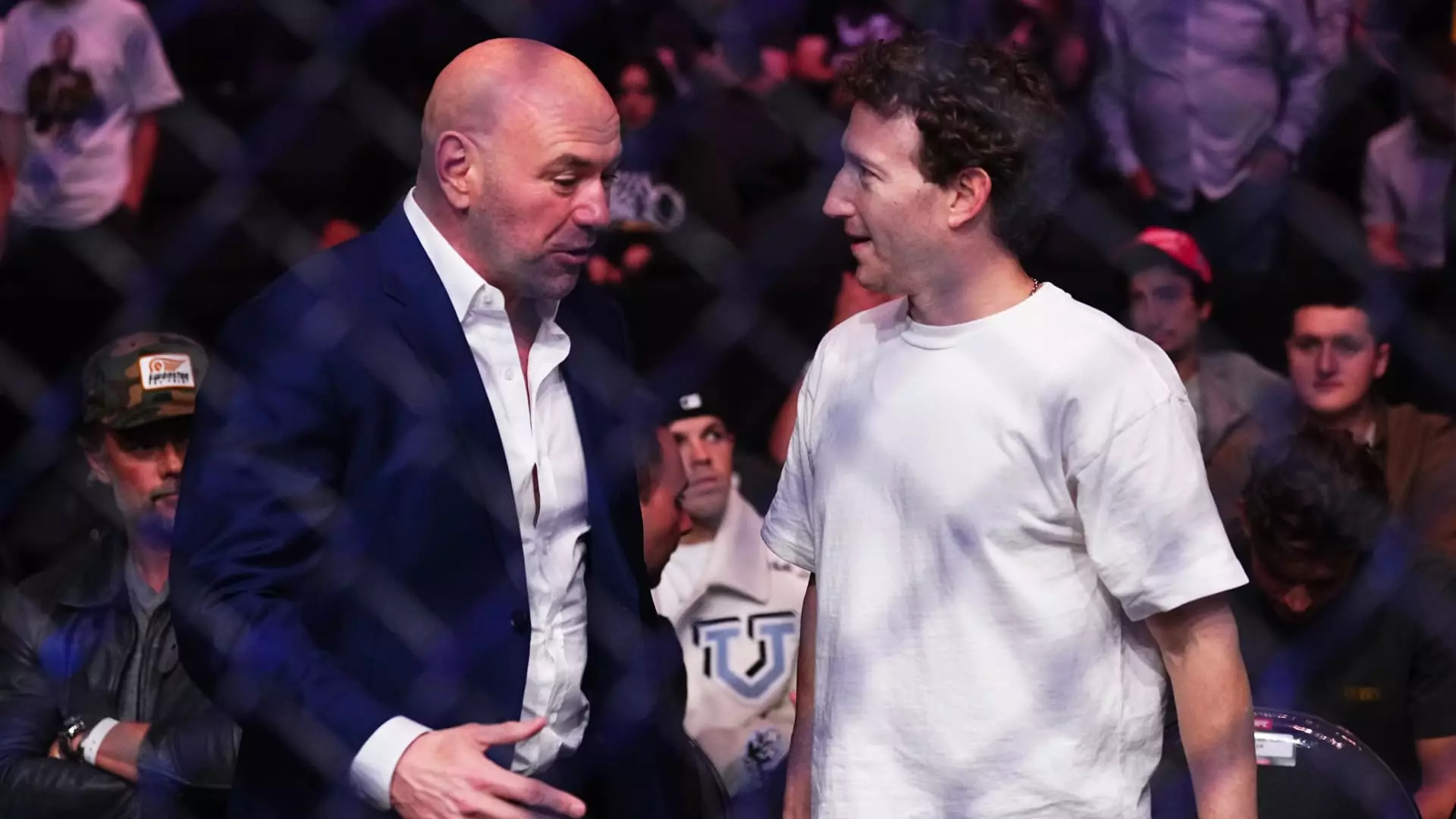The recent partnership between TKO Group’s UFC and Meta marks a pivotal moment in the evolution of fan engagement within mixed martial arts (MMA). With UFC’s foray into the digital realm, this multimillion-dollar deal not only highlights the increasing intersection of sports and technology but also emphasizes the paramount importance of immersive experiences for fans. As Meta aims to integrate its suite of applications—including Facebook, Instagram, and the innovative meta technologies—UFC stands to benefit tremendously by bringing fans closer to the action like never before. UFC President Dana White’s statement about the transformative potential of this partnership isn’t mere hype; it is a reflection of a shifting paradigm that democratizes access to athleticism through cutting-edge technology.
However, one must be cautious when painting such partnerships in rosy hues. The commercialization of sports often risks diluting the very essence of athletic competition, transforming genuine rivalries into mere marketing spectacles. Every fight may soon be accompanied by a barrage of Meta branding, with the Octagon seemingly becoming less a battleground of honor and respect and more an arena for corporate showcases. While the promise of “new ways to experience” the sport sounds appealing, it’s vital to question at what cost this engagement comes. Will enthusiasts relish the bond with fighters, or will they feel increasingly alienated amidst overly commercialized fan experiences?
The Influence of Corporate Culture
This partnership also opens a window into the corporate culture of Meta and its intertwining with UFC’s ethos. Zuckerberg’s apparent admiration for what he calls “masculine energy” might hint at a mutual benefit that transcends the business functions of the partnership. In stark contrast to the sensitivity embraced by many contemporary corporate environments, this display of vigorous masculinity can be seen as a deliberate strategic move. The blending of such contrasting corporate cultures raises eyebrows about whether the focus on aggression and combativeness will authentically resonate within the UFC fanbase or alienate those who favor a more nuanced portrayal.
Furthermore, White’s endorsement of former President Trump amplifies the intriguing interplay between politics and sports, a conversation that often surfaces in the context of UFC. Trump and White share a favorable rapport, with the UFC President giving a prominent voice during the 2024 Republican National Convention. This nexus of politics and sports can either enrich the appeal of UFC as a platform for broader cultural dialogues or pose a threat to its brand integrity by entangling it in partisan complexities.
Opportunities and Risks in the Digital Arena
Meta’s entry as the official technology partner of the UFC is not just a financial transaction—it represents a significant cultural shift within the combat sports landscape. There’s an undeniable synergy in being both a marketing partner and an official entity in wearable technology and AI glasses. By leveraging Meta’s vast resources and innovative capacity, UFC has the potential to radically transform viewer experiences, from live broadcasts to augmented interactions with fighters.
That said, it’s essential to remain alert to the underlying risk factors that accompany such partnership deals. The reliance on Mark Zuckerberg—whose personal interests in combat sports only amplify scrutiny—could create a precarious situation. If Zuckerberg were to step away or become embroiled in controversies, the impact on UFC’s brand could be destabilizing. The noted risk in Meta’s annual report, concerning Zuckerberg’s involvement in high-risk activities, encapsulates the potential volatility of this arrangement. It raises an important question about the sustainability of such partnerships—do they foster genuine growth, or are they more a flash in the pan?
Expectations Versus Reality
As UFC prepares to harness Meta’s technological prowess, the anticipation for outcomes is palpable. However, one must be wary of inflated expectations. As both companies embark on this ambitious journey, will their collaborative innovations genuinely enhance the UFC experience, or will they serve as mere distractions from the sport that so many love? The launch of unique UFC fighter rankings and exclusive content on Meta’s platforms should be measured not by their novelty but by their true impact on the athlete and fan relationship.
While the UFC’s partnership with Meta presents exciting opportunities to revolutionize the viewing experience and redefine fan interactions, it also brings forth a myriad of challenges and potential pitfalls. The blend of corporate interests with the passion of combat sports creates a fascinating yet precarious dynamic that we must navigate with critical vigilance.

